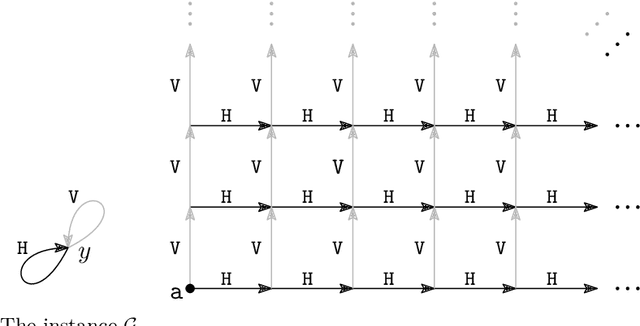Thomas Feller
Decidability of Querying First-Order Theories via Countermodels of Finite Width
Apr 13, 2023



Abstract:We propose a generic framework for establishing the decidability of a wide range of logical entailment problems (briefly called querying), based on the existence of countermodels that are structurally simple, gauged by certain types of width measures (with treewidth and cliquewidth as popular examples). As an important special case of our framework, we identify logics exhibiting width-finite finitely universal model sets, warranting decidable entailment for a wide range of homomorphism-closed queries, subsuming a diverse set of practically relevant query languages. As a particularly powerful width measure, we propose Blumensath's partitionwidth, which subsumes various other commonly considered width measures and exhibits highly favorable computational and structural properties. Focusing on the formalism of existential rules as a popular showcase, we explain how finite partitionwidth sets of rules subsume other known abstract decidable classes but -- leveraging existing notions of stratification -- also cover a wide range of new rulesets. We expose natural limitations for fitting the class of finite unification sets into our picture and provide several options for remedy.
Finite-Cliquewidth Sets of Existential Rules: Toward a General Criterion for Decidable yet Highly Expressive Querying
Sep 06, 2022
Abstract:In our pursuit of generic criteria for decidable ontology-based querying, we introduce 'finite-cliquewidth sets' (FCS) of existential rules, a model-theoretically defined class of rule sets, inspired by the cliquewidth measure from graph theory. By a generic argument, we show that FCS ensures decidability of entailment for a sizable class of queries (dubbed 'DaMSOQs') subsuming conjunctive queries (CQs). The FCS class properly generalizes the class of finite-expansion sets (FES), and for signatures of arity at most 2, the class of bounded-treewidth sets (BTS). For higher arities, BTS is only indirectly subsumed by FCS by means of reification. Despite the generality of FCS, we provide a rule set with decidable CQ entailment (by virtue of first-order-rewritability) that falls outside FCS, thus demonstrating the incomparability of FCS and the class of finite-unification sets (FUS). In spite of this, we show that if we restrict ourselves to single-headed rule sets over signatures of arity at most 2, then FCS subsumes FUS.
 Add to Chrome
Add to Chrome Add to Firefox
Add to Firefox Add to Edge
Add to Edge